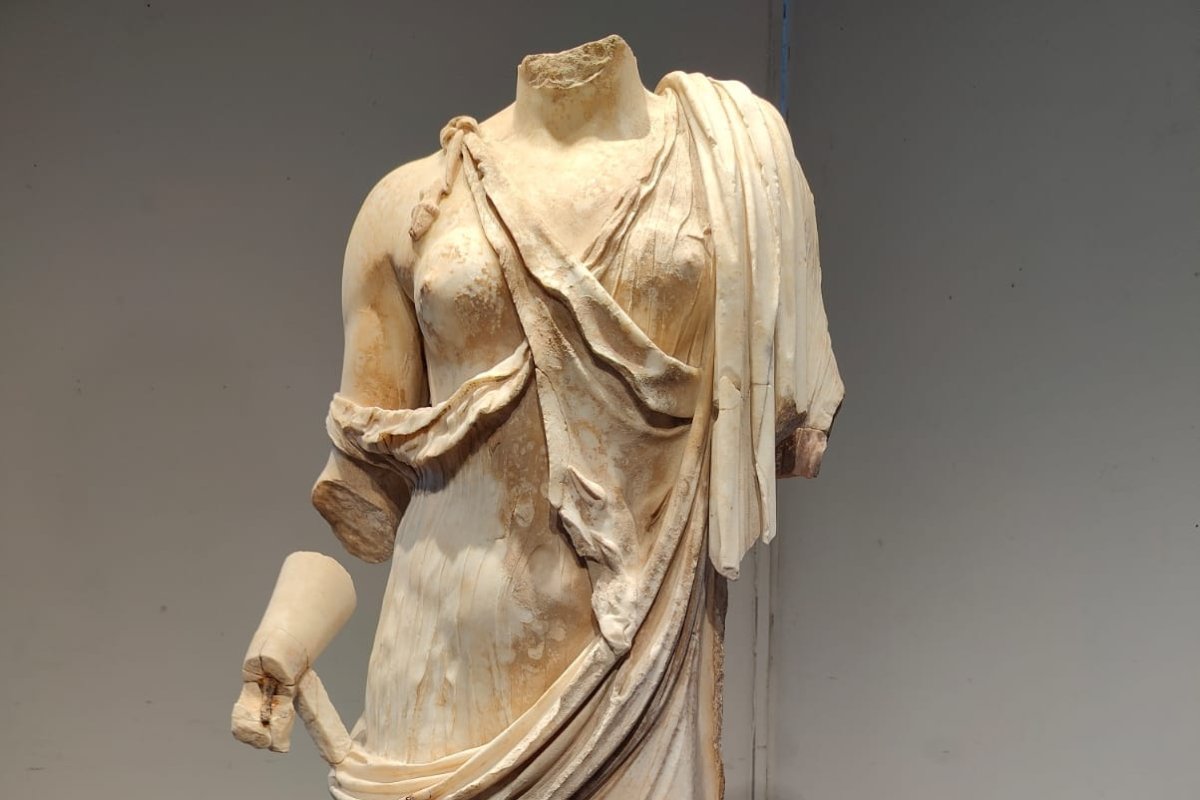An "exceptional" marble statue from the Roman era has been discovered in Italy, researchers have announced.
The female figure dates to around 2,000 years ago—somewhere between the middle of the 1st century B.C. and the mid-1st century A.D.
Researchers from the Spanish School of History and Archaeology of Rome (EEHAR)—part of the Spanish National Research Council (CSIC)—located the statue during excavations at the archaeological site of Tusculum.
EEHAR director Antonio Pizzo told Newsweek the life-sized statue is "a true rarity."

Tusculum is in an area known as the Alban Hills, which lies on the outskirts of Rome. In ancient times, this districts—known for its luxurious villas and country houses—was used by the rich as an escape from the capital.
The statue is in excellent condition and of high quality, although it is missing the head and parts of the arms, according to the researchers. It probably once belonged to an ancient bathhouse in the city.
"This is an exceptional discovery. At the time of discovery, only part of the statue's back was visible and it was lying on a thin layer of painted stucco, so it would be part of the ornamental program of the thermal baths," Pizzo said in an EEHAR press release.
He later told Newsweek: "It is a unique find in the panorama of current archaeology.
"It is not at all common to find statues in current archaeological excavations in this state of conservation and with this level of execution, rich in details and ornamental elements."
Pizzo added that the quality of execution of the statue was "absolutely exceptional"—with highlights including the detail of the clothing, the anatomical parts and the depiction of a fawn skin hanging from the chest.
This fawn skin may represent a link to the cult of the god Dionysus, according to the researchers. Dionysus, also known as Bacchus, was a Greco-Roman god of wine, fruit, vegetation, fertility, ritual madness and ecstasy, among other traits. His followers were often depicted wearing a fawn skin.
In August, German archaeologists announced that they had uncovered an ancient bath complex below the streets of a city dating back to the Roman Empire.
The discovery came during the construction of a fountain in Neumarkt, located at the heart of Cologne—a city in the west of the country whose history stretches back around 2,000 years.
In September, researchers in Israel announced the discovery of a cache of weapons from the Roman period, hidden in a remote cave.
The cache included four exceptionally well-preserved Roman swords from 1,900 years ago, according to the Israel Antiquities Authority. It also contained a shafted weapon known as a pilum—a type of javelin used by the Roman army and generally measuring around 6 feet in length.
The cave where the weapons were found is in the En Gedi Nature Reserve, just to the west of the Dead Sea. The small cave is nestled within a set of isolated and inaccessible cliffs, the antiquities authority said.
Update 10/04/23, 5:00 a.m. ET: This article was updated with additional comments from Antonio Pizzo.
Uncommon Knowledge
Newsweek is committed to challenging conventional wisdom and finding connections in the search for common ground.
Newsweek is committed to challenging conventional wisdom and finding connections in the search for common ground.
About the writer
Aristos is a Newsweek science reporter with the London, U.K., bureau. He reports on science and health topics, including; animal, ... Read more





